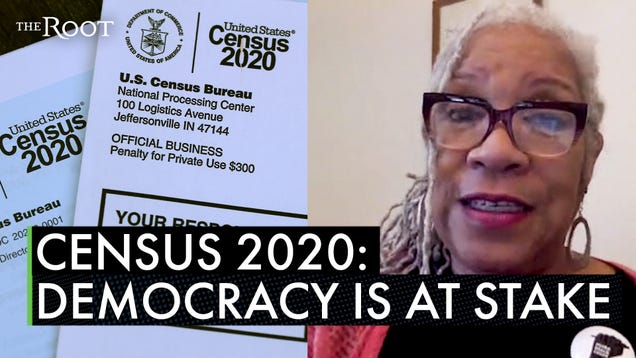
Like most good businesses, Loza Tam was created to meet a need. Founder Tomara Watkins started the business, which sells head wraps, turbans, and headbands, back in 2016 to solve her own hair issues.
“I was in a Bikram yoga class, and I have a big kinky curly fro. I had on one of those little headbands that has the little silicone strip in it. And as I was doing a downward dog, my hair was also doing a downward dog,” Watkins says. “It’s like 100 degrees in there; the last thing you want is for your hair to be in your face.”
She searched the aisles of her local stores and tried unsuccessfully to find something on the internet. “I wanted something that was going to hold my hair back, but also not rip it out, and I just didn’t find anything that I trusted to invest my money in or for my hair.”
A couple of months later, Watkins was visiting Ghana when the bright colors at the fabric market sparked an idea. She decided to have a headband made out of African print fabric and get some satin sewn into it to protect her hair, reaching out to her network of friends in Ghana to find local women who could make it for her.
“I got 100 headbands made originally. I was just going to take a couple for myself and then gift them out to friends. But I still had some leftover, and something kept nagging at me to at least put them up online to see if someone else would want them,” she says.
Watkins, who has a background in e-commerce, put them on Etsy and her business was born. She’s been rolling along ever since, but now the company is facing its biggest challenge—from the coronavirus.
“COVID-19 is definitely throwing a huge wrench into the business. Customers aren’t purchasing as much as they normally do; our sales have pretty much dropped 50%,” Watkins admits. “One Saturday we didn’t have a single sale. Needless to say, it scared me.”
But sales aren’t the only thing affected. Loza Tam’s supply chain has taken a huge hit as well. The company uses two different types of textiles, sourced in Ghana and China. Watkins purchases the fabric independently, which is shipped to the group of women in Ghana who do the final construction and assembly. And then the goods are shipped to her here in the U.S.

The Loza Tam factory in Ghana
“I started to see a disruption in my China supply chain back in January. But my suppliers assured me that ‘this corona thing’ will blow over by March,” Watkins says.
“In the midst of me getting ready to travel to Ghana to work on our spring collection in anticipation that our raw materials from China would meet me there, I was told by my Chinese supplier, ‘the markets are completely closed, and they won’t be opening back up until March.'”
Watkins had to pivot, replacing the 50% of fabric that usually comes from China with additional material from Ghana and “way more expensive” fabric from the U.S.
Now, as the pandemic moves across the globe, a different part of her supply chain is being disrupted: getting the finished product from the factory.
“I just had to do an emergency shipment because Ghana is going on lockdown. And I was not able to find a single air cargo carrier that would ship my product over here at the prices that I’m used to, so I had to resort to using DHL, which was five times what I normally pay.”
With expenses up, revenues down, and no idea when her team in Ghana will be able to go back to work, Watkins is doing what she can to boost sales and control costs.
“If the business isn’t generating as much money, then expenses have to be cut. I had someone that was doing the fulfillment process for me; I’ve had to step in and take over that myself,” she says.
In addition, Watkins has cut her marketing budget and will be applying for some of the grants and funding opportunities made available for small businesses as part of the coronavirus relief efforts.
She’s also asking the community for its support.
“I know when these types of things happen, it tends to hit us, black people, the hardest, but it also hits our black-owned businesses the hardest, because we don’t have access to as many funding opportunities as other businesses do,” Watkins says. “So this is the time to really step up and support your small black-owned businesses.”
from Black Enterprise https://ift.tt/39yK3IQ








